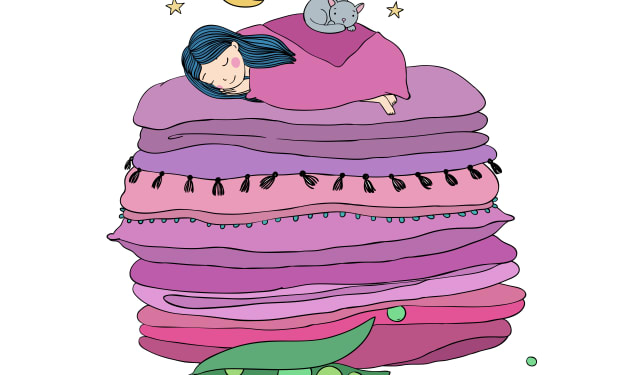Fierce and Free
Life and Death in a Native Land

I sat there on the warped wooden steps of the country store. Sitting was all I was allowed to do. People came and went. My family clung as closely as possible to our wagon in a desperate sort of way. My mother and two little sisters waited there as my father made his regular store delivery. He wasn’t permitted to enter the store.
He stacked the boxes of skins and crops and whatever he knew was of value to them on the front porch of the country mercantile, just outside. He walked past me with each trip, lugging the heavy boxes. Each time he passed by, I was forced to accept his disapproving glances. I could feel his gaze burn through me, whether I actually looked up at him or not.
I was 12 years old, but small for my age, looking much younger. I was told more than once not to leave the wagon. That our people were not welcome there, except for doing a bit of business and moving on. Still, I had always gotten away with sitting quietly on the steps that lead inside. Pushing boundaries gave me a marvelous sense of satisfaction. I am not sure whether it was the white people’s limits or my parents’ that I enjoyed testing the most. Ever since my first memories, all I wanted was to be fierce and free. Still, my mother and father were just afraid for me. I knew that.
Someday, they said, if I remained so impertinent, something bad would happen.
I was never quite sure why they tolerated my open defiance, other than the fact that they had enough to concern themselves with business‐wise on these trips into town. So, as long as I stayed right there on the bottom step, up to now, looks of disapproval had remained my only consequence.
Most of the store customers ignored me. It’s not like you might imagine. We wore store bought clothes, one of the luxuries we traded for. So, we blended in, except for the color of our skin. I was not conspicuous at all really, in my beige dress with little orange flowers and brown pocketed apron. How I looked forward to these trips to town and to meeting my friend there.
He had shown up just ages ago, in my child sense of time, and noticed me sitting quietly on the steps. I was shy with him at first, but he sat beside me and drew me out in a slow and gentle way. He started by offering me a little dictionary from the store. I was afraid to take it as a gift, so he kept it in his pocket and let me look at it every time we sat together. How I loved the way that little book smelled, the feel of the hard smooth binding and the sound of the pages turning like the wings of a little bird taking off from a low branch. That book was filled with words that I had never heard before.
He was older than me—maybe 17 or 18 years old. He exchanged goods with my father. The stuff came in wooden, slatted crates. My father liked and trusted him to some degree, it seemed, even though he was not one of us. There were a few people outside our family that could be trusted, my father always said. You just have to use your head.
Sometimes it was ammunition, sometimes liquor, sometimes both, that my father took from him in exchange for what we had to offer. At any rate, my parents never openly objected to my spending time with my friend there at the store.
A little at a time, he taught me how to read. I caught on fast, he said. I was so proud and excited that he was pleased. He was a good teacher. Patient and precise. And the coffee beans in the store. I loved how they smelled, too. So, he brought me a little handful of those smooth, shiny beans whenever he saw me sitting there. I slid those little beans deep into my apron pocket, hidden away. There were other gifts, too. Shoes. And, once, he noticed that I was holding the little book a long way from my face. So next, a pair of glasses. He made eye contact with my father each time, right before he presented me with his gifts, so it appeared that his offerings were pre‐approved. It was funny how he put the glasses on me himself and the shoes, too. Boots really. Delicate and black. I liked lacing them up around the little metal hooks. I laced them over and over again, just for fun. I had to refuse, though, when he brought out two bolts of dress material. Sheer and silky. Sort of a brownish, rose color with an embossed design. He said he thought I would look so pretty in a new dress and deserved extravagant cloth fit for a queen. But I knew this sort of dress was much too elegant for a girl like me. And my father would never approve. Still, after that, I never stopped imagining how it might be to wear such a dress, and to feel like someone else. Someone beautiful, fierce and free.
It must have been a year, maybe two, that our family made regular deliveries to the mercantile. My friend would tell me silly stories. Most of them made up, I think, but I pretended to believe all of them. I would run his stories over and over in my head on the bumpy rides home to the reservation and sometimes laugh out loud just thinking about him.
This one day, as I sat on the mercantile steps, I thought I heard them calling me back to the wagon. I heard it from a distance in the back of my head, like an echo in an empty room. The sounds were muted amidst all that was going on inside me. My friend was packing up his wagon, winding the cord around rusted spikes, to keep the heavy canvas cover in place. I was becoming a young woman and more often, I enjoyed watching him. The way he moved, the strength of his muscles flexing beneath his clothes, the gold strands glimmering through his long wavy hair.
That’s where I was—all of me—when those calls telling me to come back to the wagon faded in and out. Then, I saw him, my friend, lift his head in alarm. There was a lot of noise. Yelling. Accusations. Screaming. Shooting. Then, a silence that left me with a cold and frightened. My family was gone. Why didn’t I go when they called me? Maybe if I had, we would all be riding safely home by now. But we weren’t safe. We weren’t heading for home.
I ran toward their lifeless bodies, but he caught me, my friend. It was too late, he told me, and he shoved me hard beneath that dirty old canvas. I lay like a wounded animal, next to the crates on the gritty wagon floor, screaming, but just in my head so no one would hear. But I heard it. And I would hear that scream inside my head, behind every thought, for the rest of that entire lifetime.
I was asleep by the time the wagon stopped moving. The sun hit me hard when my friend removed the canvas revealing the crates and me. The half of my face that had been mashed against the wagon floor was pressed with grit and minute‐sized gravel. I refused his outstretched hand as I climbed clumsily to the ground. He reached over to wipe the sand off my cheek. I pulled away and regretted pulling away all at the same time.
We were in the middle of a sandy, desolate place. At home, there had been pinon, scrub oak and a cold- water stream. Here it felt lifeless. There was a partially built structure not far from where we stood and a mountain range in the far‐off distance. My friend felt a responsibility for me, I could tell. He unloaded the crates and barrels of water to make room for us in the wagon bed. That’s where we would sleep until he finished work, shoring up the partially built structure that we would eventually call home.
After the first few days, we got back to talking and to being friends again. I was proud when he was amazed at how much I knew and how much I could contribute. I built fires and cooked. Together, we put up fence posts. But there are certain things that even fences can’t keep out, no matter how sturdy, no matter how tall.
He taught me about wood. I watched his skill. A craftsman. He seemed to have as close a relationship with that wood as he did with me. Closer. He respected it as he did me. He had a true reverence for its beauty and its possibilities.
I became more than just a little envious as I watched him take his time caressing the wood—in a way that I knew he would never caress me. The wood became what it was meant to become gradually, in its own time. The wood and me. We both represented life to him, though I was quite certain that he understood that wood a whole lot better than he understood me.
Wood, he told me, was forgiving. Damaged wood could almost always be fixed. Only the natural elements could prove fatal for wood. Fire, flood, or extreme temperatures. But over these, he told me, the craftsman has no control. Just like part of our lives remain, too, out of our control, he had said.
He told me how the wood could talk, even after the tree was downed and split. So, I listened, just to see if that were true. I could hear the wood whispering to me. Those whispers vibrated from the walls of our makeshift home like music. Those whispers would comfort me, even when I felt alone. My friend was away a lot. For days, and on occasion, for weeks at a time, selling and buying. I longed for him. Just for company, really.
It was a chilly, moon lit night when I first heard her cry. I woke with a start and felt, her wings slicing through the still, dry air. I curled up and remained quiet on the comfortable soft palate my friend had built for us. I felt like an intruder, observing quietly as she roosted in the corner of the large open space where I slept.
Her face was pure white, her eyes large, round, brown, and questioning as she sent her gaze back to me. I had been found out. At first, I felt a little afraid. My grandma always said that owls are carriers of evil and death. Wherever an owl resides, death and mayhem will soon follow. Grandma always interrupted owl nest building, her gentle form of eviction. When I asked my father if all that was true, he called it an old tale among many of our people. But he said he had seen evidence that when an owl came to roost, death was often close behind. But he believed that the owl was a wise predictor or death, not that she brought death, as grandma supposed.
He said that to him, owls represent wisdom, knowledge, change, courage, and transformation. It was with this reassurance that I accepted the beautiful white barn owl as my companion. As my teacher.
We forged a connection, my owl and me. I observed her in flight, landing with grace back into the nest she had made from gathered feathers and dried regurgitated meat. She was a fierce hunter, sustaining herself mostly on the mice that ran about in and out of hidey holes around our structure. Maybe if I paid close attention, she could show me how to be fierce, too. And how to spread my wings and fly free.
But there were dreams and there was real life. Real life came in hard and cold one night as outsiders permeated the limits of our fence. They took what they wanted from the goods in the house, and they took what they wanted from me. The screeching when it was happening echoed out into the night. Was it me or my owl crying out, saying no?
When my friend returned, everything changed. I can’t be sure whether it was out of the sheer pain of looking at me—a reminder that he had not lived up to taking care of me the way he promised himself—or the fact that once it was clear that a child would come of all this, he didn’t know what to do with me. Either way, the inevitable, treacherous trip back to the reservation was the outcome. So, too, was the inevitable letting go of my beautiful owl and of my dreams of becoming like her, fierce and free.
Bleeding to death is like falling out of the sky knowing you’ll never hit the ground. Slow and painless. Did my owl portend this? Perhaps she had she come to prepare me. There was a lot of blood. The baby was still inside of me. They would bury us together that way. I left my body briskly and willingly.
My spirit wandered outside, under the stars, for many nights. I didn’t really feel any differently, except that I was no longer carrying a child. I brushed my long dark hair. I had no need to eat or drink and had felt I had no particular purpose. I was confused. I didn’t know where to go.
I had been raised to believe that when we die, we would join a great spirit and become part of the wind. So, I didn’t understand why I was walking aimlessly and that so little about my life had changed.
Nothing had lifted. Not my feelings of rejection, loneliness, or the sadness. I don’t know how much time had passed. But one day, as I wandered the hillside above the reservation, I saw him. My friend. He was standing by the place where they had buried my body, my child still inside of me, with little ceremony.
He had sent me away, I overheard him telling the others, but he had come to take me back with him, and the child.
I cried out for him. I heard my owl screeching, too, her voice melding with mine. She made an agonizing sound. One I had only heard once before. Her outcry sliced through the air reflecting a deep remorse. Like the wolf cries for her mate. Did they hear it, too? I ran to him. I touched his shoulder. At first, it appeared that he didn’t feel me. But then, he lifted his hand and touched the kiss that I had just placed softly on his cheek.
I whispered to him. I told him that just knowing that he had come back for me was enough. I thanked him for his friendship and for saving me. At first, my voice would seem to him like the wind moving through the trees. Nothing more. But as the days and weeks passed, and as his grief lifted, his heart would hear my words and the desert breeze would comfort him.
My beautiful owl came into view. She soared overhead, a graceful, silent beckoning. She landed gracefully on my forearm. I looked down and saw that I was now dressed in the finery I had always dreamed of. Suddenly, I understood. I had become fierce. I had become free. I knew where to go now. We would go together. My owl and me.
About the Creator
Sändra Alexander
Sandra has self- published several non fiction titles. She holds a Bachelor's degree in Literary Journalism and a Master's Degree in Spiritual Counseling. Sandra currently resides in a small mountain town in Southern Colorado.






Comments
There are no comments for this story
Be the first to respond and start the conversation.